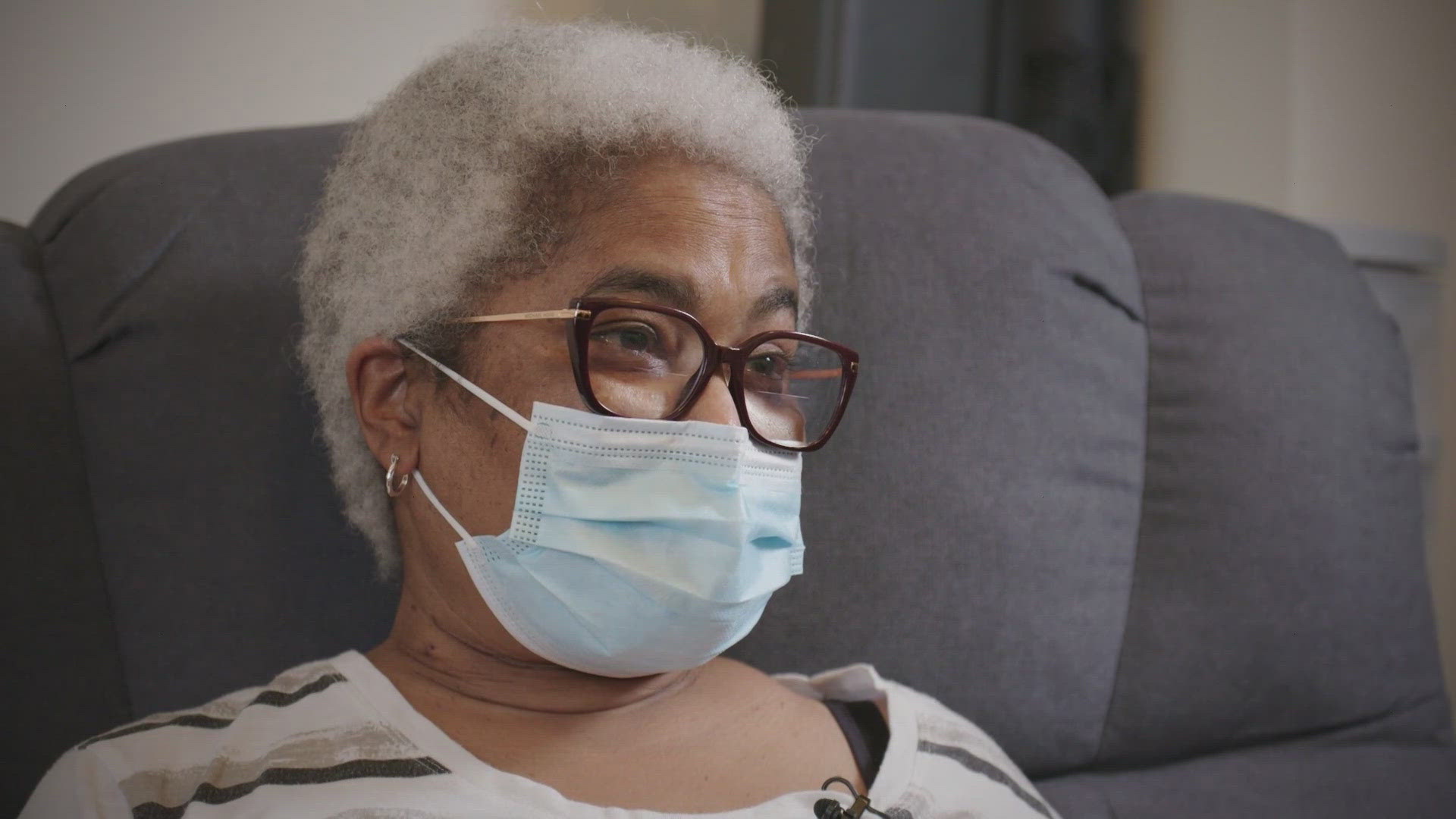KENT, Wash. — Imagine being told that you had to wait longer for a kidney transplant because of your race. That was the case for thousands of Black patients for decades.
A racially biased kidney test either prevented or delayed Black people from getting transplants. That rule was finally changed in 2022.
Dawn Wroten of Kent, 65, was on a transplant list waiting for a kidney for the last three years. Wroten was never one to lose hope.
"I knew it would happen sooner or later," Wroten said.
However, her name should have been added to the transplant list years before it happened.
"My name should've been on the list in 2016, instead of 2021," she said.
One of the reasons for the delay in getting on the list — she's Black.
For decades, race was a factor in calculating kidney health. That affected who got in line for a transplant and when.
"That was in retrospect, wrong," Dr. Nicolae Leca said. Leca is a nephrologist at UW Medicine. He said the equation used to determine where Black patients like Dawn end up on the transplant waitlist was based on faulty information.
That miscalculation meant Black patients' kidneys were considered healthier than they actually were, and their names ended up lower on the list.
"Race has been a variable in the kidney function calculation and particularly African American race due to the fact that the early studies found that African American patients may have a higher muscle mass," Leca explained.
Medical students at the University of Washington were some of the first to flag this misconception. Eventually, national transplant organizations in 2021, admitted "racial bias."
In a press release, they recommended medical institutions to use a 'race-free' approach to determine kidney function.
"First of all, race which is a social construct, and is not necessarily reflecting the biology of the patient in front of you, has nothing to do with actually how much muscle mass someone has," Leca added.
Currently within UW Medicine's transplant network, there are around 450 people in line for a kidney. Of the 450, 50 patients are Black. Once race was removed from the kidney equation, around 30 of them were able to have their wait times shortened.
It's easy to look at these numbers as just statistics - but they are all individuals desperately waiting for life-changing procedures.
Glenda Roberts of Woodinville was told her kidney was failing in 2006. But she didn't end up on the transplant list because of her race. Her kidney failure was noted before the calculation change.
She had to wait so long and got so sick, she eventually was forced to go on dialysis.
"If I got to the point that I could be on the transplant list in 2009, and it took two years longer because we were using this flawed equation, that means they would have started the evaluation in 2007," Roberts said.
After four years of waiting, in December 2010 she finally got a kidney. She said she is doing 'better than fantastic.'
After her transplant, Roberts' life went back on track. For the first time ever, she started running half marathons.
Roberts also took on another challenge, she started working as a patient advocate at the University of Washington and sat on the task force to remove racial bias from the kidney health equation.
Change didn't come easy.
"We worked on this for a year," Roberts said. "They thought it would take us six months. If you have people who are researchers, and their livelihood is based on the research and publications that they have, for many of them it was difficult to accept maybe the data was wrong."
But the task force did find the data faulty and recommended the change. Due to that change, in the first few months of 2023, nationwide, 14,300 Black patients had their wait times for a kidney cut by an average of two years.
One of those patients was Dawn, the patient from Kent who waited three years for a healthy kidney. She's still on the second month of recovery from her transplant surgery and has a lot of post-op procedures she has to follow. She also has to take dozens of pills a day.
However, day by day, the number of pills she needs to take will shrink and she hopes the number of Black patients on the transplant list will too.
The new national recommendation went into effect in 2022, but UW Medicine said they stopped using the racially biased equation before that. They also retroactively worked through their list of patients to make sure everyone's status on the waiting list was updated.
Watch more of KING 5's Facing Race coverage:

